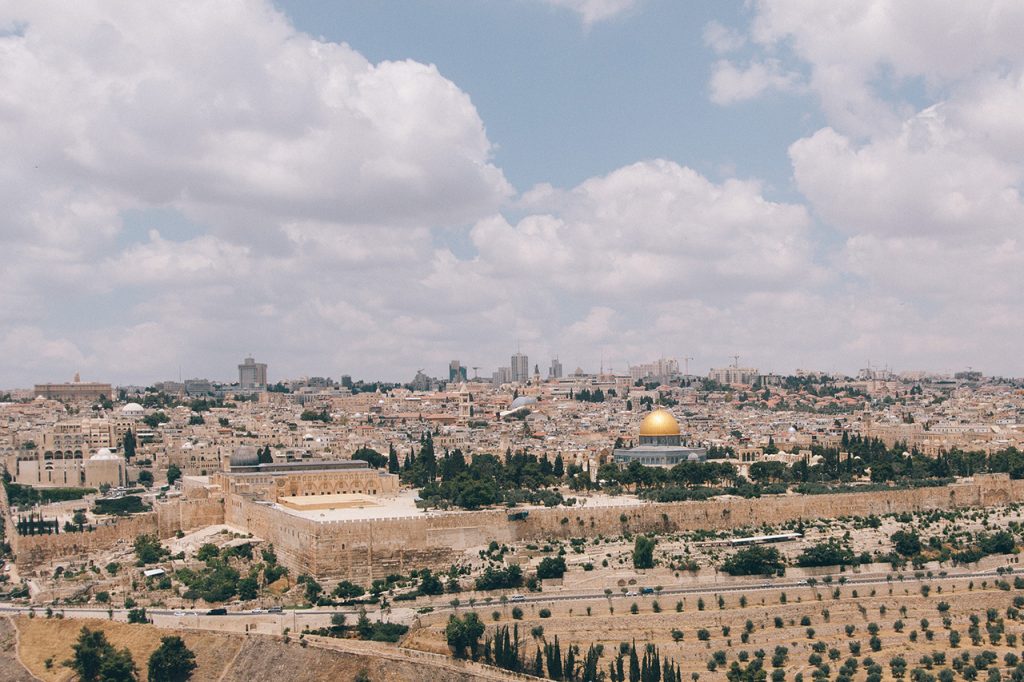Antisemitic Hate and Israeli Geopolitical Criticism Are Two Very Different Things
Rabbi Asher Lopatin, Michigan ADL Director Carolyn Normandin and Rabbi Sandra Lawson discuss the blurred lines of antisemitism in America amid the conflict in Israel and Palestine

In response to the recent conflict in Israel and Palestine, there’s been a rise in Islamophobia and antisemitism in America. Many Jewish organizations in the United States are reporting an increase in antisemitic rhetoric, incidences and attacks. On the other hand, there are also rising concerns that criticisms of the Israeli government are unfairly being equated with antisemitism. Three community leaders share their perspectives on the conflict, their experiences with domestic antisemitism and the steps that need to be taken in order to promote peace at home and abroad.
“Dehumanization is never acceptable. And Israel needs to work hard to make sure that Israelis meet Palestinians … Israelis and Palestinians should be allies … Muslims and Jews and Arab Americans and Jewish Americans, we have to have each other’s backs.” –Rabbi Asher Lopatin, Detroit Center for Civil Discourse
Listen: Jewish community leaders on the recent rise in antisemitism.
Guests
Rabbi Asher Lopatin is the founder of the Detroit Center for Civil Discourse. He says he recognizes the inequities that exist in this conflict, both in America and in the Middle East. “Dehumanization is never acceptable. And Israel needs to work hard to make sure that Israelis meet Palestinians … Israelis and Palestinians should be allies … Muslims and Jews and Arab Americans and Jewish Americans, we have to have each other’s backs.” He says the American Israeli and Palestinian communities should work together to combat the rise in hateful rhetoric surrounding the conflict. “When we stop listening, that’s when we fail. When we listen … and listen carefully, that’s when we succeed.”
Lopatin wants to promote fair treatment of all ethnicities, especially at home, he says. “The Jewish community has to wake up and see how diverse it is … that is an asset that the Jewish community must highlight and find equity for.”
“We’ve seen a rise in all kinds of harassment [in America] … blaming individuals or Jewish institutions as a way to air grievances is not peaceful.” –Carolyn Normandin, Anti-Defamation League in Michigan
Carolyn Normandin is the regional director of the Anti-Defamation League in Michigan. She says her office has received recent increased reports of antisemitic attacks. “We’ve seen a rise in all kinds of harassment [in America] … blaming individuals or Jewish institutions as a way to air grievances is not peaceful.” Normandin says her office has also been receiving reports of incidences that she says are not necessarily antisemitic, but reflect the complicated views of the Israeli state. “Criticism against the government of Israel is not antisemitism most of the time … that does not mean that I’m going to attack a person on the street.”
Normandin says she and many of her community members support a two-state solution to the conflict. “Anyone who cares about life welcomes the ceasefire.”
Rabbi Sandra Lawson is director of racial diversity, equity and inclusion for Reconstructing Judaism. She says many hateful antisemitic attacks that she experiences firsthand are taking place on social media. “We are becoming more polarized, we are picking sides, we are more likely to reduce the humanity of other people due to social media.” The complications surrounding the Israel-Palestine conflict can often blur the lines of antisemitism, according to Lawson. “Criticism of Israel is fair … Anything that sounds like someone that does not support Jews having a state crosses the line into antisemitism.”
Lawson says she wants to see equal treatment of Israelis and Palestinians. “Anything that would create equal rights for all citizens in Israel and in that region, I would support.”
Trusted, accurate, up-to-date
WDET is here to keep you informed on essential information, news and resources related to COVID-19.
This is a stressful, insecure time for many. So it’s more important than ever for you, our listeners and readers, who are able to donate to keep supporting WDET’s mission. Please make a gift today.
